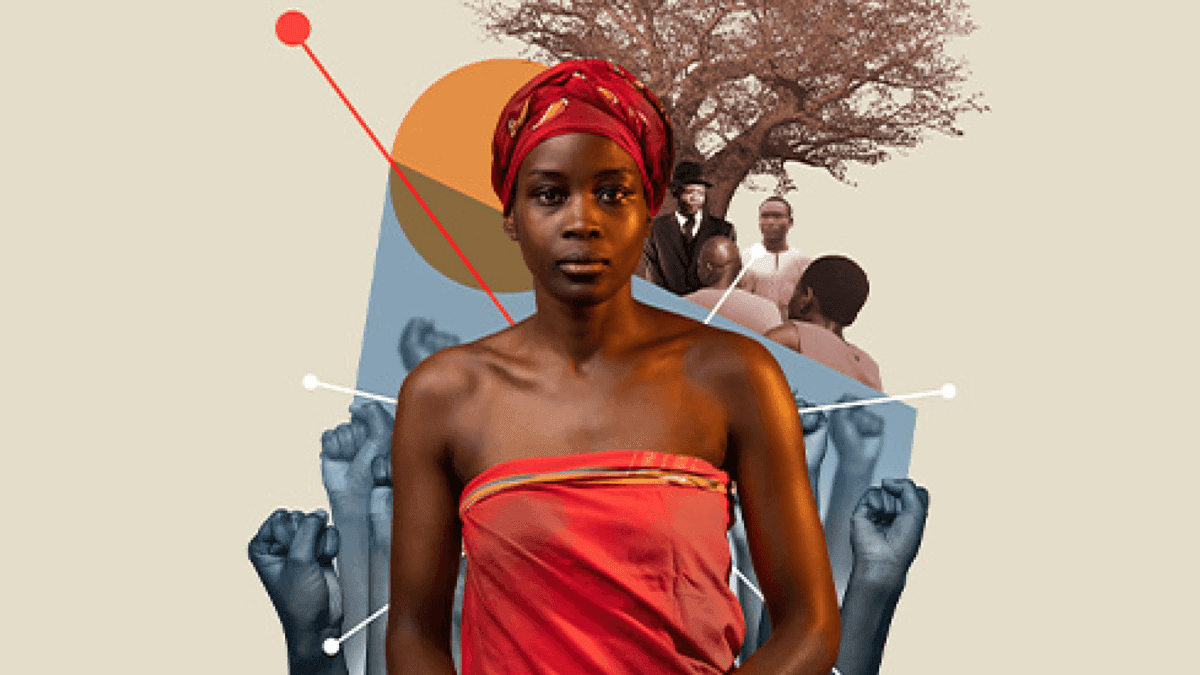Knowledge of Africa’s anti-colonial histories continues to take up a minuscule space within Western countries. But director and actress Clarissa Makundul’s moving and emotive play uncovers the anti-colonial struggle of Cameron’s past civil war, also known as the country’s ‘Secret War of Independence.’
Debuting at Southwark Playhouse in Borough, South London, Under the Kundè Tree takes place during the insurrection in Cameroon during the mid-50s and early 60s, borne from campaigns for independence, much like elsewhere on the continent. For some historians, the Cameroonian Peoples Union was the first real attempt at implementing modern guerilla warfare in Africa while others believe that the movement exemplified ‘mass participation’ rather than just ‘mass support’. And it is this political activism that sits at the heart of Sara's (Selina Jones) and Jean's (Fode Simbo)’ love story- two young Cameroonians from different worlds, marked by the political complexity of Cameroon’s Anglo and French colonial realms.
But like any romantic tragedy, their relationship is not only rocked by the political meanderings of the time but through their hopes of being together. Sara faces the struggle to commit to her father’s (Yinka Awoni) expectations or follow her heart. It is a familiar angle that most would appreciate, and the trajectory that we get with her is that she always does this. The play is as much about her personal struggles as well as that which surrounds her.
Movement and dance are interwoven beautifully throughout the play, which speaks to the pace of change and moments of retrospection that the characters are allowed to revel in. It carries the story in an effective way thanks to the teamwork of director Ebenezer Bamgboye and movement co-ordinator Rose Ryan. Violence is an inevitable part of the story, and in a small space with a small cast, the play effectively conveys this through the use of simple means: hands or chairs.
Props hang from the ceiling and may have been done for practical means but it also creates foreboding and anticipation and adds to the intimacy of the set that is primarily a mound of grass. Songs are beautifully performed by Amma-Afi Osei, who is a more traditional accompaniment to Sara’s radical and free-spirited nature. The audience gets a snapshot of actual historical speeches performed spectacularly through Yinka Awoni who also plays liberation leader, Ruben Um Nyobé.
There is an incompleteness that is felt by the end of the play. We are made to guess the fate of the characters by the end, which could also reflect how vague and unknown Cameroon’s anti-colonial struggle is in the public imagination of the period. But it leaves one wanting more.
It is however to Larissa’s credit that Under the Kundè Tree is the only production in the UK to explore Cameroon’s Independence War primarily through the lens of women, an ode to Larissa’s grandmother whose stories inspired this piece.
Under the Kundè Tree will be at Southwark Playhouse until June 17

